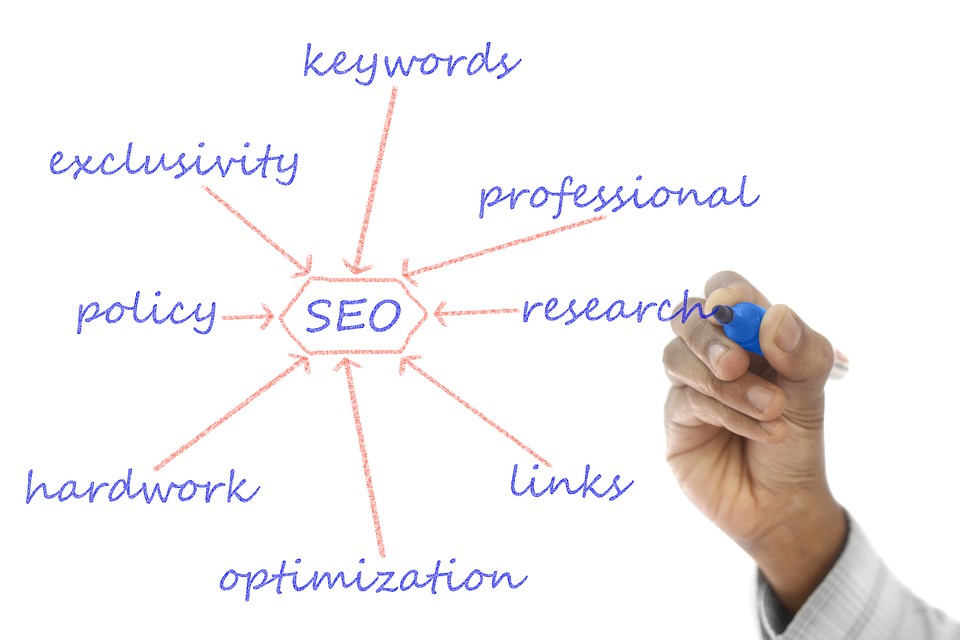How to Repurpose Content for Maximum Reach

Repurposing content is one of the smartest ways to expand your audience without constantly starting from scratch. Many creators, brands, and businesses find themselves overwhelmed by the pressure to publish something new every day, but the truth is that existing material often holds far more potential than it gets credit for. With a little creativity, you can transform a single idea into multiple formats that appeal to different audiences across various platforms. This approach saves time, boosts visibility, and keeps your message consistent while still feeling fresh. By understanding how to reshape your existing work, you can stretch its impact and reach people who may have missed it the first time around.
Start by Identifying High-Performing Content
 The best content to repurpose is the material that has already gained traction. Look at engagement metrics such as comments, shares, and views to see what resonated most with your audience. High-performing content often has an underlying idea that people care about, which makes it a strong foundation for multiple formats. Once you pinpoint a winner, you can revisit the message and look for new angles or supporting ideas that enhance what you already have. You do not need to reinvent anything; simply take the core message and reshape it to fit new contexts. A popular blog post can become a short script for a video, or a live talk can turn into an article with deeper explanations. By building upon ideas that already sparked interest, you raise your chances of reaching new users who prefer consuming content in different forms.
The best content to repurpose is the material that has already gained traction. Look at engagement metrics such as comments, shares, and views to see what resonated most with your audience. High-performing content often has an underlying idea that people care about, which makes it a strong foundation for multiple formats. Once you pinpoint a winner, you can revisit the message and look for new angles or supporting ideas that enhance what you already have. You do not need to reinvent anything; simply take the core message and reshape it to fit new contexts. A popular blog post can become a short script for a video, or a live talk can turn into an article with deeper explanations. By building upon ideas that already sparked interest, you raise your chances of reaching new users who prefer consuming content in different forms.
Adapt the Message to Fit Each Platform
Every platform has its own rhythm, audience expectations, and preferred formats. Repurposing content means reshaping the message so it fits naturally onto each channel without feeling repetitive. A long article can be condensed into a series of social media captions, while detailed research can transform into an infographic that highlights key points. Shifting your content this way allows each version to match the style of the platform while still delivering the same core value. When adapting content, think about how people behave on each platform. Short attention spans call for punchy video clips or quick tips, while podcast listeners appreciate longer discussions. By adjusting tone, length, and delivery style, you give your content new life and broaden your reach to audiences who use different mediums for learning or entertainment.
Refresh Older Material With Updated Insights

Content does not have an expiration date, but it can benefit from occasional updates. Trends change, new data emerges, and your own perspective may deepen over time. Reworking older material with recent insights gives it renewed relevance and makes it more appealing to today’s audience. This process also helps you reflect on how the topic has evolved and where you can add value. Refreshing content might involve adding new examples, clarifying a point that readers found confusing, or expanding a section to answer questions you’ve received. These refinements boost credibility and give returning followers something new to appreciate. Meanwhile, new followers get access to a polished version that fits current conversations and expectations.
Repurposing content is a strategic way to extend your reach, increase engagement, and save creative energy. By identifying top-performing material, reshaping it to suit individual platforms, and refreshing older ideas with new insight, you can keep your message alive across multiple channels. This approach amplifies your visibility while reducing the pressure for new content. With thoughtful planning and creative adjustments, your content can continue working for you long after its original publish date.









 With the rise of influencer marketing, authenticity has become paramount. Micro-influencers, with their smaller but highly engaged followings, have an edge when it comes to building genuine connections with their audience. Unlike celebrity influencers who often endorse numerous products, micro-influencers tend to focus on specific niches they are truly passionate about. Their content is authentic because it reflects their personal experiences and interests.
With the rise of influencer marketing, authenticity has become paramount. Micro-influencers, with their smaller but highly engaged followings, have an edge when it comes to building genuine connections with their audience. Unlike celebrity influencers who often endorse numerous products, micro-influencers tend to focus on specific niches they are truly passionate about. Their content is authentic because it reflects their personal experiences and interests. Last but not least, by collaborating with micro-influencers who have built a loyal following within specific interest areas, marketers can tap into new markets and engage with consumers who are truly interested in their products or services. This targeted approach allows for more personalized messaging and increases the chances of conversion. Micro-influencers also offer access to diverse cultural backgrounds and perspectives.
Last but not least, by collaborating with micro-influencers who have built a loyal following within specific interest areas, marketers can tap into new markets and engage with consumers who are truly interested in their products or services. This targeted approach allows for more personalized messaging and increases the chances of conversion. Micro-influencers also offer access to diverse cultural backgrounds and perspectives.
 Another tip to increase sales in your online business is to focus on digital advertising. You can use social media, search engine optimization (SEO), and pay-per-click (PPC) campaigns to reach potential customers. With this strategy, you can target specific audiences with tailored ads and maximize your return on investment. Additionally, you should track the performance of your campaigns so that you can adjust them accordingly and improve their effectiveness over time. If you need help with this, consider hiring a digital marketing agency that can help you create and manage your campaigns. It will make things much easier, and you can rest assured that your campaigns deliver results.
Another tip to increase sales in your online business is to focus on digital advertising. You can use social media, search engine optimization (SEO), and pay-per-click (PPC) campaigns to reach potential customers. With this strategy, you can target specific audiences with tailored ads and maximize your return on investment. Additionally, you should track the performance of your campaigns so that you can adjust them accordingly and improve their effectiveness over time. If you need help with this, consider hiring a digital marketing agency that can help you create and manage your campaigns. It will make things much easier, and you can rest assured that your campaigns deliver results.
 There are thousands of affiliate programs out there, but not all of them are created equal. You want to find programs that offer good commissions and have products that your target audience will be interested in.
There are thousands of affiliate programs out there, but not all of them are created equal. You want to find programs that offer good commissions and have products that your target audience will be interested in. It is important to track your results so that you can see what is working and what is not. There are a number of tools that you can use to do this, such as Google Analytics. By tracking your results, you will be able to adjust your strategy to get the best results possible.
It is important to track your results so that you can see what is working and what is not. There are a number of tools that you can use to do this, such as Google Analytics. By tracking your results, you will be able to adjust your strategy to get the best results possible.
 Although these are extreme examples, they help to distinguish what a website is made up of. This means you need to determine what your website should do. For instance, if you need an e-commerce website, you should hire a web design company that specializes in such websites. Remember that e-commerce brings about many technological and logistical challenges. The company to choose ought to have experience in this sector and help you scale the growth of your enterprise.
Although these are extreme examples, they help to distinguish what a website is made up of. This means you need to determine what your website should do. For instance, if you need an e-commerce website, you should hire a web design company that specializes in such websites. Remember that e-commerce brings about many technological and logistical challenges. The company to choose ought to have experience in this sector and help you scale the growth of your enterprise. You can find website
You can find website 
 If you want to stand out from the rest of your competitors, you need to hire professional graphic designers. The trick is that if you can make your materials have better appeals than the rest, you are way ahead of them. It is also a sure way to build excellent reputations in your clients. Endeavor to have a distinctive brand that will make you stand out from the rest. The bottom line lies in seeking the best professional agencies.
If you want to stand out from the rest of your competitors, you need to hire professional graphic designers. The trick is that if you can make your materials have better appeals than the rest, you are way ahead of them. It is also a sure way to build excellent reputations in your clients. Endeavor to have a distinctive brand that will make you stand out from the rest. The bottom line lies in seeking the best professional agencies. You probably have many business assignments to handle and don’t want to spend more on designing complicated logos, brochures, and templates. Creating these and other relevant business items require maximum attention and skill. You need a professional to handle that for you. They know how to do it within a short time while equally coming up with an appealing design.
You probably have many business assignments to handle and don’t want to spend more on designing complicated logos, brochures, and templates. Creating these and other relevant business items require maximum attention and skill. You need a professional to handle that for you. They know how to do it within a short time while equally coming up with an appealing design. If you forego a professional graphic designer, you risk becoming inconsistent. A professional graphic designer knows how to create something whose quality will not be watered down with time. Always remember that your design speaks for you among the clients. That is why you need to remain consistent as long as possible.
If you forego a professional graphic designer, you risk becoming inconsistent. A professional graphic designer knows how to create something whose quality will not be watered down with time. Always remember that your design speaks for you among the clients. That is why you need to remain consistent as long as possible.
 The right SEO company you hire should have many years of experience in search engine optimization. Therefore, they are experts in this industry and can help you come up with SEO campaigns that can take your business to another level. The company you choose ought to provide you with reports regularly. Remember that the services of SEO companies can vary from one company to another. However, they need to carry out tasks such as analyzing your website, reviewing the existing content, and keyword research.
The right SEO company you hire should have many years of experience in search engine optimization. Therefore, they are experts in this industry and can help you come up with SEO campaigns that can take your business to another level. The company you choose ought to provide you with reports regularly. Remember that the services of SEO companies can vary from one company to another. However, they need to carry out tasks such as analyzing your website, reviewing the existing content, and keyword research. The truth is that copywriting plays a critical role when it comes to SEO. In fact, this method is attractive to both visitors and search engines. SEO consultants can help identify opportunities for content development and can help boost rankings and increase the conversion rate.
The truth is that copywriting plays a critical role when it comes to SEO. In fact, this method is attractive to both visitors and search engines. SEO consultants can help identify opportunities for content development and can help boost rankings and increase the conversion rate.
 that will help you understand whether everything is on point. Using the right keywords is also an optimization strategy that can help improve your ranking on several sites. You should look for the best keywords and use them correctly. Other options you have include the use of backlinks, creating a fast loading website, a mobile-friendly website, and the use of high-quality images or videos. Web optimization can benefit you in so many ways which include:
that will help you understand whether everything is on point. Using the right keywords is also an optimization strategy that can help improve your ranking on several sites. You should look for the best keywords and use them correctly. Other options you have include the use of backlinks, creating a fast loading website, a mobile-friendly website, and the use of high-quality images or videos. Web optimization can benefit you in so many ways which include: of your website. A lot of people will have trust in your site by virtue of ranking top in search engines. This can also leave a positive mark on your business. You should optimize your website to enjoy these and many more benefits.
of your website. A lot of people will have trust in your site by virtue of ranking top in search engines. This can also leave a positive mark on your business. You should optimize your website to enjoy these and many more benefits.
 Keyword research is critical as far SEO services are concerned. To make you have a better understanding of this concept, we first need to understand what keyword research is? A keyword research is a process of identifying the relevant keywords that people type on search bars of the search engines. They do this with the intention of finding information on the product/ services that they want to buy. So when you have the right keywords on your website, it simply means that you will be able to direct many people to your website. This way, you can be sure that a good number of those people that will be visiting your website will be buying from you.
Keyword research is critical as far SEO services are concerned. To make you have a better understanding of this concept, we first need to understand what keyword research is? A keyword research is a process of identifying the relevant keywords that people type on search bars of the search engines. They do this with the intention of finding information on the product/ services that they want to buy. So when you have the right keywords on your website, it simply means that you will be able to direct many people to your website. This way, you can be sure that a good number of those people that will be visiting your website will be buying from you. An SEO company can also help you to market your business through social marketing. If you take you time to look at the whole issue of online marketing, you will realize that social marketing also commands a large part of it. This is because many people are now actively involved in social media and reaching them and persuade them to buy from you is very easy.
An SEO company can also help you to market your business through social marketing. If you take you time to look at the whole issue of online marketing, you will realize that social marketing also commands a large part of it. This is because many people are now actively involved in social media and reaching them and persuade them to buy from you is very easy.
 Why do you want to hire an SEO? That is one question that you should have an answer for. Is it the auditing, web building, or the link building you should be sure of what exactly is needed at the moment? A company always has goals that they want to achieve, and this will be helpful when you are choosing an SEO because you will just look for someone who understands the goals that you have and is willing to help. Make the targets know to the SEO, and ask them how they are going to help you achieve those goals.
Why do you want to hire an SEO? That is one question that you should have an answer for. Is it the auditing, web building, or the link building you should be sure of what exactly is needed at the moment? A company always has goals that they want to achieve, and this will be helpful when you are choosing an SEO because you will just look for someone who understands the goals that you have and is willing to help. Make the targets know to the SEO, and ask them how they are going to help you achieve those goals. Nothing can go wrong if you have an SEO company recommendation. The question of if the company can get the job done will only be answered by the people that have worked with the enterprise before. After you have paid the company, a visit asks to get the references of companies they have worked with before. A company that has nothing to hide will not hesitate in giving you the references. After getting the references make sure that you call them and get to ask if they were satisfied with the services they got.
Nothing can go wrong if you have an SEO company recommendation. The question of if the company can get the job done will only be answered by the people that have worked with the enterprise before. After you have paid the company, a visit asks to get the references of companies they have worked with before. A company that has nothing to hide will not hesitate in giving you the references. After getting the references make sure that you call them and get to ask if they were satisfied with the services they got.
 Today, the search engines are quickly incorporating the social media interactions in their algorithms. So, as much as the social SEO is not replacing the old strategy, it is becoming an important part of it. Therefore, the more the traffic comes from the social sites like Twitter and Facebook, the more a website ranks high. An expert will work to generate a high traffic through the social media which also has a positive impact on sales. The Social SEO helps the financial advisers in the following ways.
Today, the search engines are quickly incorporating the social media interactions in their algorithms. So, as much as the social SEO is not replacing the old strategy, it is becoming an important part of it. Therefore, the more the traffic comes from the social sites like Twitter and Facebook, the more a website ranks high. An expert will work to generate a high traffic through the social media which also has a positive impact on sales. The Social SEO helps the financial advisers in the following ways. Having a chat with a client on Facebook or Twitter is far much easier than using emails or any other formal communication channels. In fact, some firms have very interactive Social platforms that they have to employ agents to respond to such messages at any one single time. This kind of interaction will help identify the market needs to deliver better services.
Having a chat with a client on Facebook or Twitter is far much easier than using emails or any other formal communication channels. In fact, some firms have very interactive Social platforms that they have to employ agents to respond to such messages at any one single time. This kind of interaction will help identify the market needs to deliver better services.
 Quite often, many businesses don’t think but instead, ignore web design as a marketing tool. Web design is a powerful tool that can influence the users’ attention and the amount of time spent on the business site. Frankly speaking, a business website is the heartbeat of all its digital marketing campaign. So, if the page isn’t clean, interesting and easy to read, all the effort put into strategy development os as wasted. The business is still going to lose more and more customers. Alternatively, by creating a website that attracts attention, is up to date, and most importantly, user-friendly, the business will not only retain but also attract more new customers.
Quite often, many businesses don’t think but instead, ignore web design as a marketing tool. Web design is a powerful tool that can influence the users’ attention and the amount of time spent on the business site. Frankly speaking, a business website is the heartbeat of all its digital marketing campaign. So, if the page isn’t clean, interesting and easy to read, all the effort put into strategy development os as wasted. The business is still going to lose more and more customers. Alternatively, by creating a website that attracts attention, is up to date, and most importantly, user-friendly, the business will not only retain but also attract more new customers. If you aren’t a professional in digital and or internet marketing, talk to an expert in the industry. There are thousands and thousands of internet marketing consultants at a business’s disposal. Why not talk to any? Of course, they ‘ll give valuable information as well as some insight on what needs to be changed for success to be realized. Small businesses whose proprietors are fully engaged can greatly benefit by taking advantage of hiring a digital marketing coach.
If you aren’t a professional in digital and or internet marketing, talk to an expert in the industry. There are thousands and thousands of internet marketing consultants at a business’s disposal. Why not talk to any? Of course, they ‘ll give valuable information as well as some insight on what needs to be changed for success to be realized. Small businesses whose proprietors are fully engaged can greatly benefit by taking advantage of hiring a digital marketing coach.


 xperts in the industry. In fact, there are thousands of such SEO firms all over. However, the truth is that there are countless little things as well as several years of experience that are vital for an agency to be skilled in SEO industry.
xperts in the industry. In fact, there are thousands of such SEO firms all over. However, the truth is that there are countless little things as well as several years of experience that are vital for an agency to be skilled in SEO industry.

 How is a top ranking of your website important to your business? Well, there are many benefits that you will get from this. First, you need to understand that most people who visit any website prefer to make use of the top ranked sites. This is because they feel that top ranked sites will direct them to where they will get quality services. It, therefore, goes without saying that top ranked sites are likely to b ring more people your shop and therefore enhance the volume of your sale.
How is a top ranking of your website important to your business? Well, there are many benefits that you will get from this. First, you need to understand that most people who visit any website prefer to make use of the top ranked sites. This is because they feel that top ranked sites will direct them to where they will get quality services. It, therefore, goes without saying that top ranked sites are likely to b ring more people your shop and therefore enhance the volume of your sale. If you are very keen, you will realize that a good number of people across the globe are very active when it comes to social media matters. This, therefore, tells you that social media commands large influences as far as internet network is concerned. SEO service providers have social media experts who will help your business to grow. Through social media, you will be able to reach as many people as possible. Check out SEO Services Minneapolis that will take your business to the next level.
If you are very keen, you will realize that a good number of people across the globe are very active when it comes to social media matters. This, therefore, tells you that social media commands large influences as far as internet network is concerned. SEO service providers have social media experts who will help your business to grow. Through social media, you will be able to reach as many people as possible. Check out SEO Services Minneapolis that will take your business to the next level.
 person who will do what a whole team would be able to do. The person may be needed to just come up with the information needed to be sent then it can be sent out as personalized email on autopilot. These cutting of costs will ensure that the company has reduced how much they spend while at the same time ensuring that the sales activities bring in more returns.
person who will do what a whole team would be able to do. The person may be needed to just come up with the information needed to be sent then it can be sent out as personalized email on autopilot. These cutting of costs will ensure that the company has reduced how much they spend while at the same time ensuring that the sales activities bring in more returns. This applies to mostly the startups. Efficiency is necessary when handling the marketing department. Using the market automation software one can easily clone a program so that they will not necessarily have to start from scratch to come up with such things. It will help in saving time and energy whenever there will be need to come up with something new. This also applies to the existing businesses as well.
This applies to mostly the startups. Efficiency is necessary when handling the marketing department. Using the market automation software one can easily clone a program so that they will not necessarily have to start from scratch to come up with such things. It will help in saving time and energy whenever there will be need to come up with something new. This also applies to the existing businesses as well.
 trend is the increase in the number of mobile or smart phone users on the net. As such, how smart-phone users view your site influences how Google ranks your website. As such, modern web designer use a responsive design that detects the screen size of the device and present the page in the best way.
trend is the increase in the number of mobile or smart phone users on the net. As such, how smart-phone users view your site influences how Google ranks your website. As such, modern web designer use a responsive design that detects the screen size of the device and present the page in the best way. Make your site easy to use
Make your site easy to use

 Digital marketing enables the business to engage their prospects, clients and the public know about their existing products and services. They are also able to encourage them to try out their products and rate. Reviews that could be useful to the public are also an added advantage. They are also able to know what aspects of their business they need to improve on because of the responses from the general public.
Digital marketing enables the business to engage their prospects, clients and the public know about their existing products and services. They are also able to encourage them to try out their products and rate. Reviews that could be useful to the public are also an added advantage. They are also able to know what aspects of their business they need to improve on because of the responses from the general public.
 This is an on page SEO technique. Keep in mind that the title of a particular post plays a very major role in the search engine techniques, therefore, the title should have less than 60 characters. However, the title should not be too short because in that case, the ranking will not be very good in the search engine, thus it should have at least forty characters. Repetition of the same keyword in the title tag should be avoided because although the blogger may think that repeating keywords will increase the ranking, the truth is actually the opposite. It affects the ranking.
This is an on page SEO technique. Keep in mind that the title of a particular post plays a very major role in the search engine techniques, therefore, the title should have less than 60 characters. However, the title should not be too short because in that case, the ranking will not be very good in the search engine, thus it should have at least forty characters. Repetition of the same keyword in the title tag should be avoided because although the blogger may think that repeating keywords will increase the ranking, the truth is actually the opposite. It affects the ranking. In each blog post or website, only the relevant meta description should be used. Use the target keyword in the meta description but avoid keyword spamming all the same. As much as the search engines pick out keywords, it is important to ensure that the blog or website visitors click on the link. Ensure therefore, that the meta description is related to the post and makes sense.
In each blog post or website, only the relevant meta description should be used. Use the target keyword in the meta description but avoid keyword spamming all the same. As much as the search engines pick out keywords, it is important to ensure that the blog or website visitors click on the link. Ensure therefore, that the meta description is related to the post and makes sense.

 Social media content will gain prominence and marketers will use social media content to optimize their page for maximum visibility in search engine results. Including videos to your content will improve the page ranking in the search engine results. More marketers and businesses will include videos in their content. Mobile optimization will become crucial and SEO strategies should be created for mobile searches by marketers.
Social media content will gain prominence and marketers will use social media content to optimize their page for maximum visibility in search engine results. Including videos to your content will improve the page ranking in the search engine results. More marketers and businesses will include videos in their content. Mobile optimization will become crucial and SEO strategies should be created for mobile searches by marketers.
